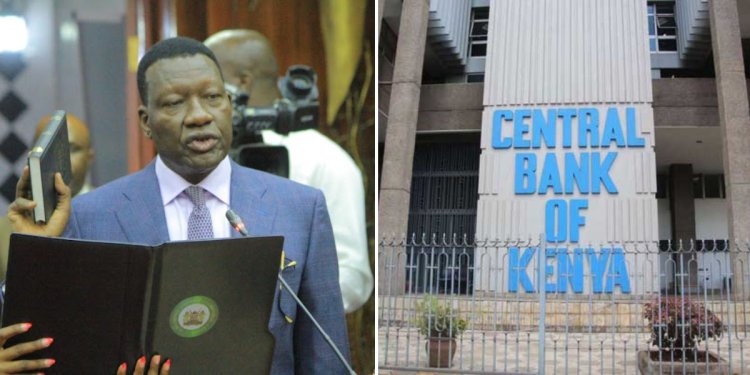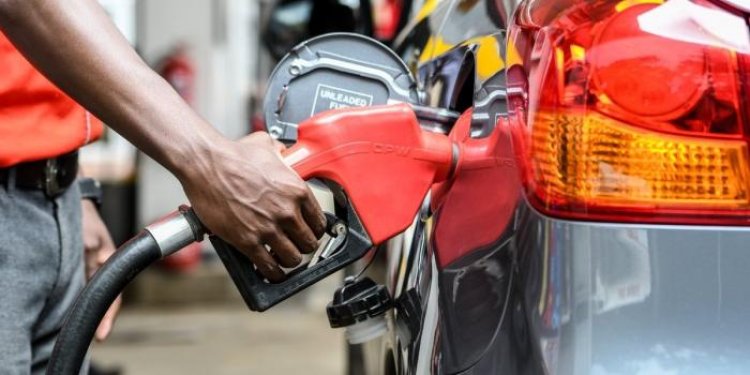CS Chirchir's Statement On Fuel Prices Hike To Ksh300 Clashes With CBK
His sentiments came as the Energy and Petroleum Regulatory Authority (EPRA) prepares to announce another monthly fuel price review anticipated for Tuesday, November 14.

Energy Cabinet Secretary (CS) Davis Chirchir's remarks on fuel prices potentially rising to Ksh300 have continued to spark controversy across Kenya, with a recent revelation by the Central Bank of Kenya (CBK) contradicting his sentiments.
CS Chirchir on Monday, November 6 told the National Dialogue Committee (NADCO) that the Israel-Hamas war could risk pushing up fuel prices in the country to Ksh300 per litre.
His sentiments came as the Energy and Petroleum Regulatory Authority (EPRA) prepares to announce another monthly fuel price review anticipated for Tuesday, November 14.
"We can't do much on international pricing of petroleum. I read an article in the Financial Times the other day that because of the Hamas and Israeli War, the international prices could go up to USD150 (Ksh22,717) and that would mean our products going to a high of Ksh300 at the pump," CS Chirchir told NADCO.

A car being fuelled at a petrol station. /FILE
Currently, the prices of fuel ahead of this month's review read as follows: Super Petrol, Diesel and Kerosene retail at Ksh217.36, Ksh205.47 and Ksh205.06 respectively.
However, an excerpt from the CBK's Weekly Bulletin tells a different story.
The report, published on November 3 and three days before CS Chirchir's remarks, indicates a decline in global oil prices owing to the impact of the Israel-Palestine war.
"International oil prices declined during the week ending November 2, due to the dissipating impact of the war between Israel and Palestine.
"Murban oil price declined to USD 87.24 per barrel on November 2 from USD 90.23 per barrel on October 26," the CBK report stated.
The discrepancy between CS Chirchir's warnings of a potential price hike and the CBK's report of a decline in oil prices has raised questions about the accuracy and reliability of his statement.
To make matters worse for him, neighbouring country Tanzania announced a decrease in fuel prices for November as Kenya continues to grapple with record-high fuel costs.
In a statement, Tanzania's Energy and Water Utilities Regulatory Authority (EWURA), the equivalent of Kenya's Energy and Petroleum Regulatory Authority (EPRA), revealed that the decrease was informed by trends in the global oil market in November.
"Changes in prices of petroleum products in November 2023 are mainly due to the decrease in the world oil price by an average of 5.68%, and a decrease in premiums for the importation of petroleum products by an average of 13% for PMS and 25% for AGO, reduction of production of petroleum products by OPEC+ and economic sanctions on Russia," stated EWURA in part.
The prices which took effect in Tanzania on Wednesday, November 1 affected regions such as Dar es Salaam, Tanga, and Mtwara.
In Dar, considered one of the country's largest cities, the price of Super Petrol dropped to Tsh 3274 (Ksh 197.62) per litre from the previous Tsh 3281 (Ksh 198.04). Diesel was lowered to Tsh 3374 (Ksh 203.65) from the previous Tsh 3448 (Ksh 208.12).
For the Tanga region, EWURA announced that the price of petrol per litre for November would be Tsh 3320 (Ksh 200.39), a decrease from the previous Tsh 3327(Ksh 200.82).
The price of petrol for Mtwara was lowered to Tsh 3347 (Ksh 202.02) from the previous Tsh 3353 (Ksh 202.38).
EWURA further attributed the price cuts to the decrease of the duties imposed on petroleum imports by an average of 13% for petroleum and 25% for Automated Gas Oil (AGO).


 admin
admin 




